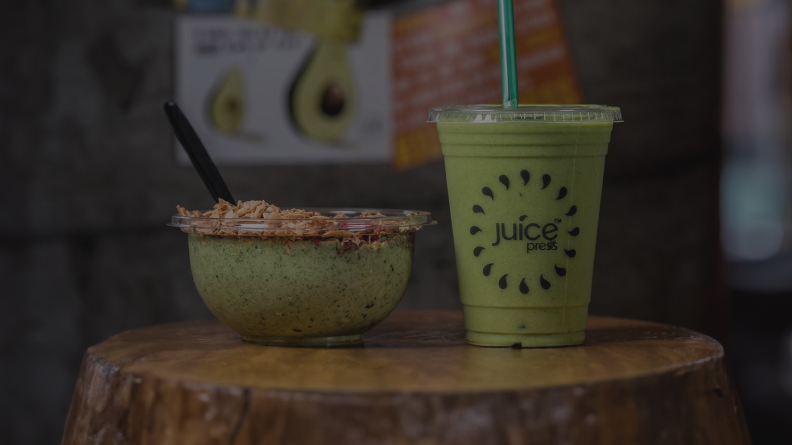
How Juice Press saved $200k automating one workflow
400 hours per week
$200k a year saved
Eliminated need to add headcount
Without Parabola, I would end up having to hire another full-time salaried employee. Now we can focus energy on things that require thought, strategy, interpretation, and judgement as opposed to things that are manual — just pressing buttons.”
Overview


The problem
Manual inventory management and tip allocation
Before Parabola, Juice Press was manually completing processes across multiple parts of their business, including finance, HR, payroll, and their production team. They were spending hundreds of hours per week on manual, repetitive tasks, ultimately hurting their margins.
Two processes in particular were eating up most of this time:
- Ariana Korman, Juice Press’s COO, had to manually update inventory and ordering information for each of their 85 store locations.
- Each location was separately managing their own tipping pools in a manual process that required HQ to pull four or five reports into their accounting software.
Juice Press had a few goals they wanted to achieve with Parabola:
- They wanted to get their employees’ time back. They didn’t want to have to continue hiring to keep up these manual processes.
- They wanted to improve how these processes were run and get rid of the inefficient Excel tasks.
The solution
Tip allocation automation with Parabola
Juice Press was looking for a solution that was customizable, but also powerful enough to automate all of the tasks they needed to optimize. When they started out with Parabola, they set up a few Flows to address some of their most essential workflow inefficiencies.
The first of their Flows were meant to automate inefficient Excel processes, like tip allocation. They created a 38-step Flow that pulls in tip data for a specific date range from the point of sale from each store location through a direct integration with Square. It pulls data from their payroll system to determine hours worked by each employee within the same date range and generates a report in a format compatible with their payroll system, allowing them to allocate tips accordingly.

They also set up two different Flows to automate ordering inventory for each store location.
- A Flow was built to create order templates. It pulls every store’s desired (“par”) and actual inventory levels from MarketMan, their restaurant management system, to automatically calculate order quantities and create order templates for each location.
- A Flow that ingests the data from each of these order templates into Parabola to create orders through MarketMan's API. These Flows let Juice Press forecast the par level based on sales and compare it with real-time inventory to automatically order the correct amount.
As Juice Press saw the efficiency that Parabola created, they began to view it as an essential workflow optimization tool with tons of opportunity for time and labor cost savings. They took on the position that anything that was time-consuming, manual, and repetitive should be done in Parabola.
The results
400 hours per week in manual work saved
At this point, Parabola is saving Juice Press over 400 hours per week in manual work and over $200,000 a year across the whole company. With the tip allocation Flow, HR and Payroll teams are saving a total of 200+ hours per week in manual work, which translates to over $2,000 per week in labor costs for the company. By automating their ordering workflow for each store location, they’re saving 15 hours per week and eliminating the need to hire full-time help just to keep up their manual workflows.
By implementing Parabola, the Juice Press team has unlocked a ton of possibilities for increasing the efficiency of workflows across their business. They’re actively working with Parabola to identify new Flows to continue to uncover new and creative ways to save time and money.
—
This customer story is for informational purposes only. Parabola makes no warranties, express or implied, in this document.
Don't just take our word for it.
See how leading brands use Parabola to automate their complex data workflows.





.png)















